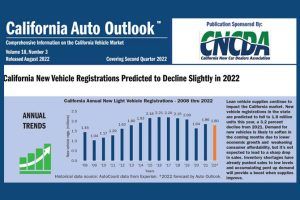Current and proposed rules by the Federal Trade Commission (FTC) are worth reviewing, as they may directly impact your dealership’s operations.
First, let’s discuss a rule that’s been in effect for many years but is gaining new significance due to today’s unique combination of inventory shortages and online sales. The FTC has long maintained its “Mail, Internet, or Telephone Order Merchandise Rule,” which applies to most goods consumers order by mail, telephone, fax, or Internet.
The Rule requires that when businesses advertise merchandise, there is an expectation that the order will ship within 30 days unless the business clearly and conspicuously represents the shipment will not be made by such a date. Moreover, the rule requires customer consent to extend an order in case of a delayed shipment.
If your dealership engages in online sales, we strongly encourage you to contact competent counsel and/or review the FTC’s guide on the Rule, which is accessible on the FTC’s website at https://bit.ly/3bW5F9x.
Second, on June 23, 2022, the FTC proposed a rule to “ban junk fees and bait-and-switch advertising tactics that can plague consumers throughout the car-buying experience.” Formally called the “Motor Vehicle Dealers Trade Regulation Rule,” this overbroad proposal would dramatically impact dealers throughout the United States.
The proposed rule would impose additional regulations on how vehicles are advertised, especially concerning pricing. For example, the rule states dealers must advertise the vehicle’s price inclusive of all charges except government fees and taxes. This is different than current California law, which states dealers can exclude certain charges (such as the document processing charge) from the advertised price of a vehicle. The rule would also impose requirements on how proposed monthly payments can be presented to customers.
The proposed rule will also require dealers to “obtain express informed consent before any charges” for any product or service related to the sale, financing, or lease of a vehicle. This would expand and modify current pre-contract disclosure statement requirements for California dealers.
Perhaps most troubling is a proposed ban on “any add-on product or service that confers no benefit to the consumer.” This requirement could be weaponized against dealers that charge GAP in circumstances where the federal government deems such sale inappropriate.
Finally, the proposed rule would also impose a two-year records retention requirement on all “materially different advertisements, sales scripts, training materials, and marketing materials regarding the price, financing or lease of a motor vehicle.” Records related to lists of optional products, add-ons, service contracts, GAP Agreements, and related materials must also be maintained for two years. Additionally, customer complaints must also be retained. These expanded retention requirements empower government officials and plaintiffs’ attorneys.
CNCDA is closely working with NADA to push back against the FTC’s proposed rule. In the coming months, you’ll likely hear more from us on these potential requirements.






